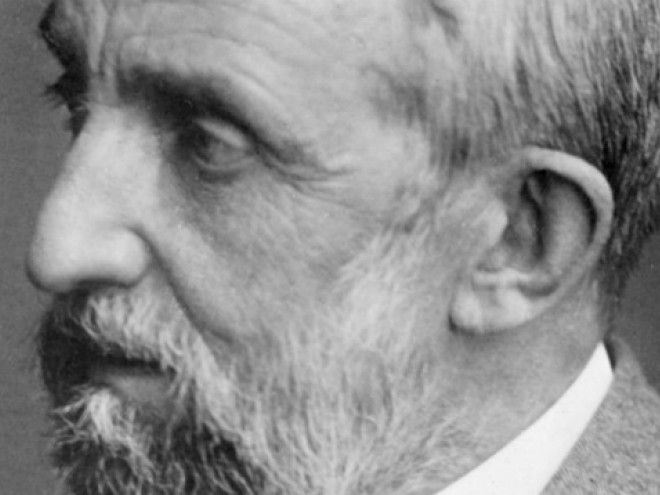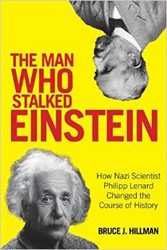Earlier this week, Bruce J. Hillman shared the story behind writing The Man Who Stalked Einstein. He is blogging here all week as part of the Visiting Scribe series on The ProsenPeople.
In his autobiography, William Carlos Williams, the partly Jewish American physician and poet largely responsible for rethinking how we define poetry, asked himself rhetorically: “How do you do it? How can you carry on an active business… and at the same time find time to write?”
“One occupation, complements the other,” he explained. “They are two parts of a whole… that it is not two jobs at all, that one rests the man when the other fatigues him.”
Williams was verbalizing what many Jewish physicians have experienced over the centuries. From the Hellenic Jewish physician, Luke — whom some credit with writing the eponymous New Testament Gospel— to the many contemporary Jewish physicians who write because some inner voice tells them they must, medical doctors have found the energy to both pursue busy practices and write and publish literary works.
I count myself among them. As a Jew, a university physician, and a commercially published author, I benefit not only from the respite writing provides but from how my two interests proceed in parallel, each informing the other. A thoughtful physician is not simply a student of health and disease. His experiences practicing medicine teach him to think beyond his five senses to arrive at new insights that can inform the thoughts and actions of his literary characters. In turn, putting words to a page clarifies his thinking and enhances his empathy for the human condition, benefitting both himself and his patients.
 My Jewish upbringing and my training as a physician powerfully influence what I choose to write about and how I execute my thoughts. My first effort at creative nonfiction, The Man Who Stalked Einsteintells the true story of Philipp Lenard, a Nobel Prize winning physicist whose jealousy of Albert Einstein’s popularity, fear of being rendered inconsequential by Einstein’s new physics, and rabid anti-Semitism led to his hounding Einstein out of Germany and spearheading the dismissal of Jewish professors from German universities.
My Jewish upbringing and my training as a physician powerfully influence what I choose to write about and how I execute my thoughts. My first effort at creative nonfiction, The Man Who Stalked Einsteintells the true story of Philipp Lenard, a Nobel Prize winning physicist whose jealousy of Albert Einstein’s popularity, fear of being rendered inconsequential by Einstein’s new physics, and rabid anti-Semitism led to his hounding Einstein out of Germany and spearheading the dismissal of Jewish professors from German universities.
My second book, tentatively titled A Plague on All Our Houses, is to be released by ForeEdge Press in the fall of 2016. Plague follows the medical career of Dr. Michael Gottlieb from 1981 — when he discovered the deadly new disease, AIDS — through 1987, when a Job-like confluence of adversities forced him from academic practice. Gottlieb’s early medical celebrity, caring for the AIDS-afflicted Rock Hudson, and co-founding amfAR with Elizabeth Taylor brought him into conflict with his immediate superiors and put him at odds with the ruling conservatism of that era. As such, the book is an instructive tale of envy, ambition, and the perils of fighting a powerful system.
Writing and medical practice. It is not a question of choosing between one or the other. Those who hear the call, must choose to pursue both.
Bruce Hillman is Professor of Radiology at the University of Virginia and Editor-in-Chief of the Journal of the American College of Radiology. He has published eight short stories and the 2010 book for lay readers, The Sorcerer’s Apprentice: How Medical Imaging is Changing Health Care.
Related Content:
- Jay Neugeboren: A Rabbi’s Tale
- Daniel Torday: The Complication of the Jewish Writer Question
- Ned Beauman: Anti-Semitism of a Complex Kind
Bruce Hillman is Professor of Radiology at the University of Virginia and Editor-in-Chief of the Journal of the American College of Radiology. He has published eight short stories and the 2010 book for lay readers, The Sorcerer’s Apprentice: How Medical Imaging is Changing Health Care. The Man Who Stalked Einstein is his first non-medical book.




